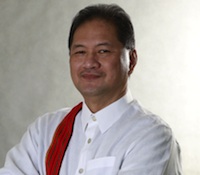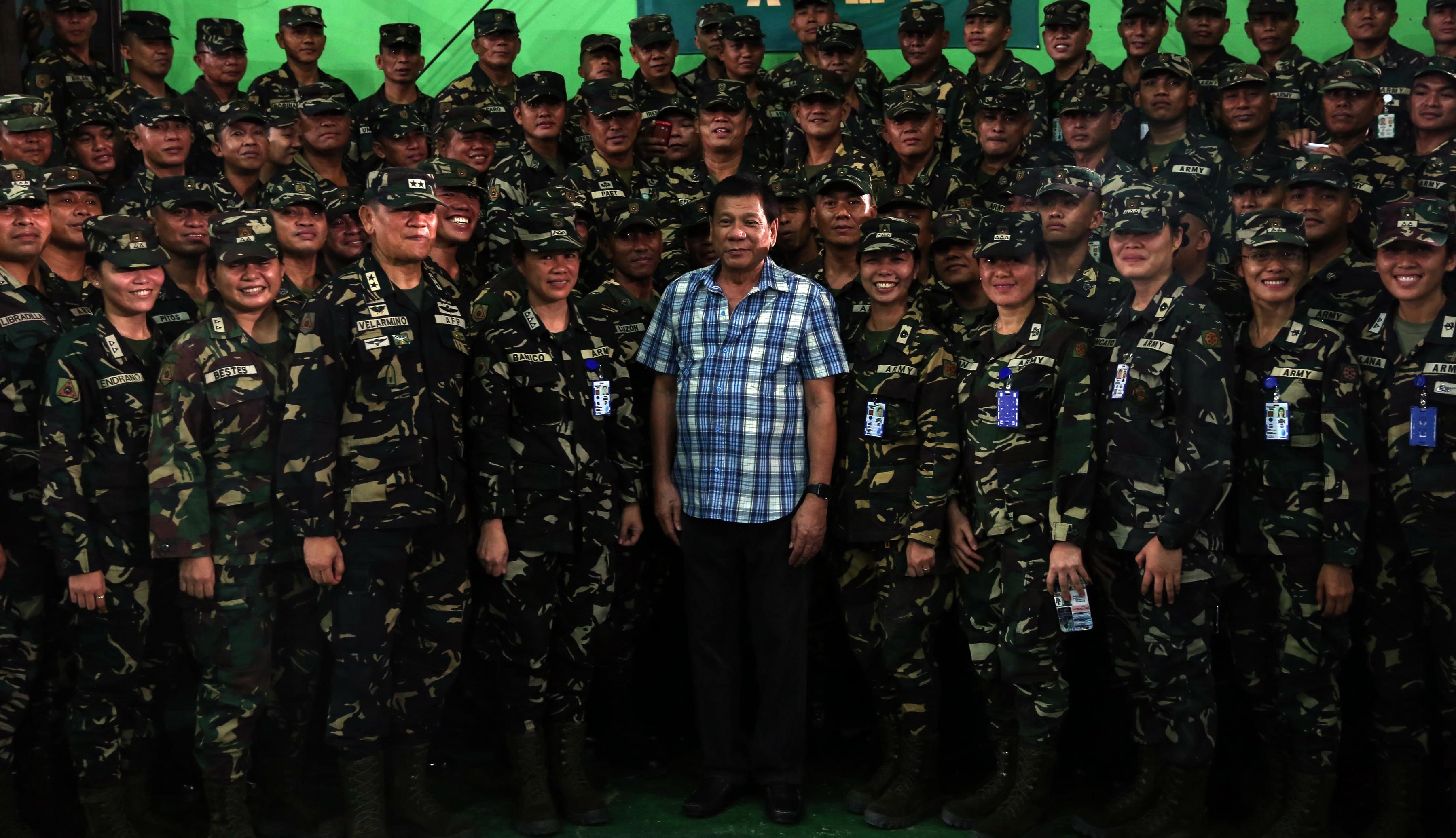SUMMARY
This is AI generated summarization, which may have errors. For context, always refer to the full article.

Extraordinary powers are instituted to allow the President to wage a most efficacious defense of the nation in times of crisis, without being unduly straitjacketed by structural and bureaucratic restraints.
By establishing this framework, the Constitution expected that the process would be far more flexible, and capable of quicker, more decisive action, than the legislative process.
However, the framers of the Constitution, while recognizing the need to provide for such powers, also acknowledge the dangers that it entails. Constitutional safeguards, not the least of which is the instrument of judicial scrutiny, are in place to check against abuse.
The President is given a lot of leeway when it comes to the exercise of extraordinary powers. (READ: Duterte declares state of lawlessness)
What level of conflict demarcates the choice between ordinary police action and resort to emergency rule? What degree of punitive State action is necessary to address the emergency without exposing civil liberties to unwanted perils? Sadly, the answer to these questions depends largely on this wide presidential discretion; for which reason, emergency rule becomes fraught with opportunities for abuse; a gateway to constitutional shortcuts.
Once emergency rule is declared, the constitutional bonds are loosened that could create a window of opportunity for unrestricted power. As the Supreme Court said in David v. Arroyo, where President Gloria Macapagal Arroyo’s declaration of a state of national emergency (eerily resembling Proclamation 1081, the martial law declaration of President Marcos), “the power is by and large a discretionary power solely vested on the President’s wisdom.”
3 kinds of extraordinary powers
Strictly speaking, there are three (3) kinds of extraordinary powers provided under the 1987 Constitution.
The first is found in Article XII, Section 17, which states: In times of national emergency when the public interest so requires the State may, during the emergency and under reasonable terms prescribed by it, temporarily take over or direct the operation of any privately owned public utility or business affected with public interest. This power was invoked by President Cory Aquino when she issued Proclamation No. 503, declaring a state of emergency after the December 1989 coup attempt.
The second provision is in Article VI, Section 23, which provides that the Congress, by a vote of two-thirds of both Houses in joint session assembled, voting separately, shall have the sole power to declare the existence of a state of war. It also provides that in times of war or other national emergency, the Congress may, by law, authorize the President, for a limited period and subject to such restrictions as it may prescribe, to exercise powers necessary and proper to carry out a declared national policy. Unless sooner withdrawn by resolution of the Congress, such powers shall cease upon the next adjournment thereof. FVR used this provision to deal with the power crisis early in his term. This is the provision being invoked by the Duterte government so it can respond effectively to the transportation crisis.
The third provision refers to the commander-in-chief powers of the President under Article VIII, section 18, which authorizes the President to call on the Armed Forces to prevent or suppress lawless violence, impose martial law, or suspend the privilege of the writ of habeas corpus in case of invasion or rebellion. The provision presupposes that there is an imminent or ongoing threat to public order or national security. To address the threat, the President is provided “a platter of graduated powers” to deal with the situation in accordance to its severity. Marcos used the martial law power in 1972 and Arroyo did the same in 2009 but limited to Maguindanao after the Ampatuan massacre. Both Estrada and Arroyo used the calling out powers which is what Duterte is now invoking with this declaration of state of lawlessness.
Most benign

The power to call on the Armed Forces to prevent or suppress lawless violence which may well be considered as the most benign of these powers while the most serious and carries the most impact on the social and political life of the nations is the martial law powers.
All of these are reviewable by the Supreme Court, including the legal and factual basis of such a declaration. Definitely, Duterte’s declaration does not suspend the Bill of Rights, including the privilege of the writ of Habeas Corpus and certainly not freedom of expression and press.
I venture to say that for as far back as I remember, the calling out powers have been continuously invoked, even without official declarations, because the military has been routinely called to support the police in addressing internal threats.
The truth is that constitutions are primarily designed, not to achieve efficiency, but to create an intricate system of checks and balances among the branches of government. By and large, it reflects a great distrust on the part of government to exercise powers entrusted to it in a responsible manner, most notably the Executive branch. Nowhere is it truer than in the present 1987 Constitution, the pervading theme of which is to do away with all possibilities of strongman rule, no doubt a painful lesson of the Marcos dictatorship.
Avoid slippery slope
The problem arises then when an emergency occurs and the government is inevitably hampered with the deliberate pace of constitutional rule. Certainly, the President cannot be expected to wait for congressional deliberation before he can declare a state of war when it is staring at him in the face.
This is the dilemma many constitutional governments face. As a result, most constitutions incorporate provisions and unique power arrangements to deal with emergencies. These extraordinary powers however, can be considered, at best, a necessary evil. It should never be considered normal, must never be lightly granted by Congress, and if the right case or controversy comes, the Supreme Court has to scrutinize this carefully.
In a paper I co-authored several years ago, we cited the guidelines formulated by Clinton Rossiter in his seminal work Constitutional Dictatorship which are designed to avoid the slippery slope of frequent resort to extraordinary powers.
Let me paraphrase, for relevance, four of them here:
- No extraordinary powers should be initiated unless it is necessary or even indispensable to the preservation of the state and society;
- All uses of extraordinary powers and all readjustments in the organization of the government should be effected in pursuit of constitutional or legal requirements.
- No extraordinary powers should be adopted, no right invaded, no regular procedure altered any more than is absolutely necessary defeat a particular crisis;
- Extraordinary powers should never be permanent in character or effect, and should extend beyond the termination of the crisis for which it was instituted.
In sum, extraordinary powers should only be invoked as a last resort. If options, less ominous, are conferred to the executive by the constitution and the laws sufficient to meet the declared national emergency, then by all means they must be preferred.
Indeed, the slippery slope of frequent recourse to an emergency rule is the ever-present possibility that such will slide into a permanent and unconstitutional regime.
For now, Duterte’s declaration does not appear to lead us to that slope. But we must be vigilant. – Rappler.com
The author is former dean of the Ateneo School of Government.
Add a comment
How does this make you feel?
There are no comments yet. Add your comment to start the conversation.